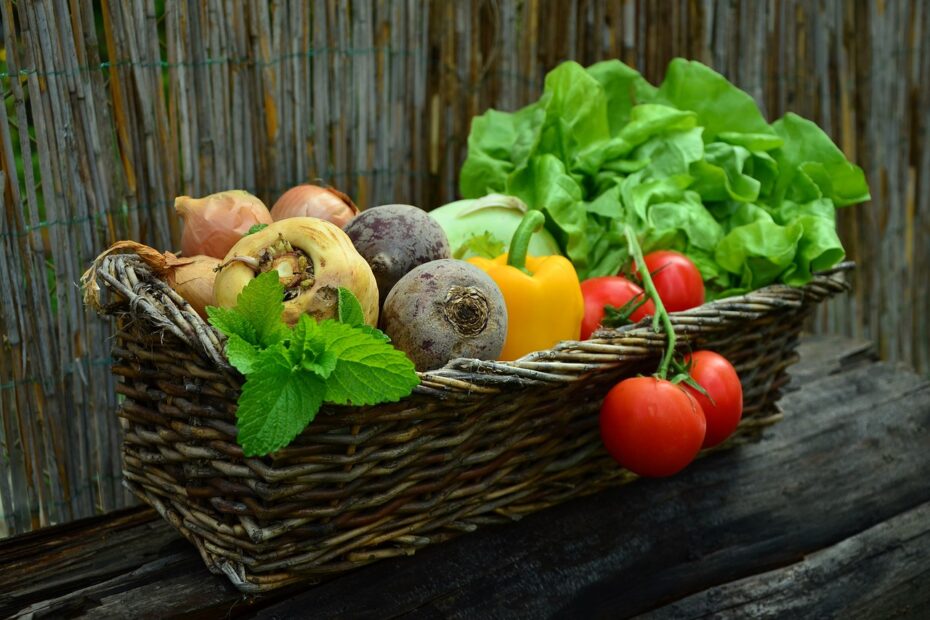Maintaining good eye health is essential for leading a vibrant and active life. Our eyes are our windows to the world, and ensuring they stay healthy can significantly impact our quality of life. Did you know that what you eat can directly influence your vision? That’s right—certain vegetables are packed with nutrients that can strengthen your eyesight and help prevent common eye problems.
How Diet Impacts Eyesight
Role of Nutrients in Vision
Our eyes rely on a variety of nutrients to function optimally. These include vitamins, minerals, and antioxidants that protect the eyes from damage and support their overall health. Without these essential nutrients, our vision can deteriorate over time, leading to conditions such as macular degeneration, cataracts, and even blindness.
Common Eye Issues Linked to Poor Nutrition
Poor nutrition can lead to several eye issues, including:
- Night Blindness: Often caused by a deficiency in Vitamin A.
- Dry Eyes: Lack of Omega-3 fatty acids can result in dry, irritated eyes.
- Macular Degeneration: Insufficient intake of antioxidants like lutein and zeaxanthin can increase the risk.
- Cataracts: Low levels of Vitamin C and E can lead to the development of cataracts.
Essential Nutrients for Eye Health
To keep your eyes in tip-top shape, you need a diet rich in:
Vitamin A
Crucial for maintaining the health of the retina and preventing night blindness.
Vitamin C
An antioxidant that protects the eyes from harmful free radicals.
Vitamin E
Helps protect the eyes from oxidative damage.
Omega-3 Fatty Acids
Essential for maintaining the health of the retina and reducing the risk of dry eyes.
Zinc
Helps maintain the health of the retina and may delay the progression of macular degeneration.
Top Vegetables for Strengthening Eyesight
Carrots
Nutritional Benefits
Carrots are rich in beta-carotene, a precursor of Vitamin A, which is essential for good vision.
How Carrots Improve Vision
Beta-carotene converts to Vitamin A in the body, helping to maintain a clear cornea and good night vision.
Spinach
Nutritional Benefits
Spinach is packed with lutein and zeaxanthin, antioxidants that are beneficial for eye health.
Vision-Enhancing Properties
These antioxidants filter harmful blue light and help prevent macular degeneration.
Kale
Nutritional Benefits
Kale is another great source of lutein and zeaxanthin, along with Vitamin C and beta-carotene.
Vision-Enhancing Properties
The high levels of antioxidants in kale protect against damage from sunlight and oxidative stress.
Sweet Potatoes
Nutritional Benefits
Sweet potatoes are high in beta-carotene and Vitamin E.
How Sweet Potatoes Support Eye Health
Beta-carotene supports good vision, while Vitamin E protects the eyes from oxidative damage.
Red Peppers
Nutritional Benefits
Red peppers are rich in Vitamin C, which is important for eye health.
Vision-Enhancing Properties
Vitamin C helps prevent cataracts and supports the health of blood vessels in the eyes.
Broccoli
Nutritional Benefits
Broccoli contains lutein, zeaxanthin, and Vitamin C.
How Broccoli Supports Vision
These nutrients help protect the eyes from harmful light and oxidative damage.
Tomatoes
Nutritional Benefits
Tomatoes are rich in lycopene, lutein, and Vitamin C.
Vision-Enhancing Properties
Lycopene helps protect the eyes from light-induced damage and supports overall eye health.
Peas
Nutritional Benefits
Peas are a good source of lutein, Vitamin C, and Vitamin E.
How Peas Support Eye Health
These nutrients work together to protect the eyes from oxidative damage and improve overall eye health.
How to Incorporate These Vegetables into Your Diet
Simple Recipes and Tips
- Carrot and Spinach Smoothie: Blend carrots, spinach, and a bit of orange juice for a nutrient-packed start to your day.
- Kale Chips: Bake kale leaves with a touch of olive oil and salt for a crunchy, eye-healthy snack.
- Sweet Potato Fries: Swap regular fries for baked sweet potato fries to boost your Vitamin A intake.
Meal Planning for Eye Health
Plan your meals to include a variety of these vegetables throughout the week. Incorporate them into salads, soups, and main dishes to ensure you’re getting a wide range of nutrients.
Additional Tips for Maintaining Good Eyesight
Regular Eye Exams
Even if your vision seems fine, regular eye exams can catch potential issues early.
Proper Lighting and Screen Time Management
Ensure your workspace is well-lit and take regular breaks from screens to reduce eye strain.
Protective Eyewear
Wear sunglasses to protect your eyes from UV rays and safety glasses when engaging in activities that could harm your eyes.
Conclusion
Taking care of your eyes starts with what you put on your plate. By incorporating these vision-boosting vegetables into your diet, you can support your eye health and reduce the risk of common vision problems. Remember, your eyes are invaluable—nourish them well!
FAQs
How quickly can diet changes improve eyesight?
Diet changes can start to impact eye health within a few weeks to a few months, depending on the individual and the extent of nutrient deficiencies.
Are supplements as effective as whole vegetables?
Whole vegetables are generally more effective because they provide a combination of nutrients and fiber that supplements alone cannot offer.
Can children benefit from these vegetables?
Absolutely! These vegetables can help support the healthy development of children’s eyes and overall health.
What are some signs of improved eye health?
Improved night vision, reduced dryness, and less eye strain are some signs that your eye health is getting better.
Are there any vegetables to avoid for eye health?
Most vegetables are beneficial, but it’s essential to maintain a balanced diet. Avoiding excessive intake of starchy vegetables like potatoes can be beneficial for overall health.
